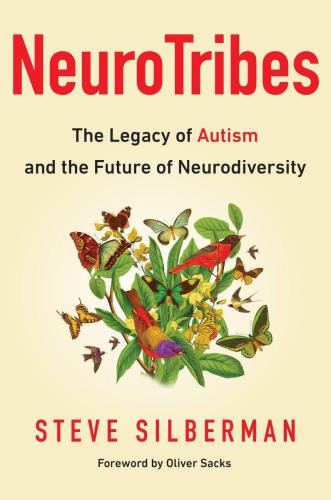
NeuroTribes
The Legacy of Autism and the Future of Neurodiversity
کتاب های مرتبط
- اطلاعات
- نقد و بررسی
- دیدگاه کاربران
نقد و بررسی

June 29, 2015
Journalist Silberman devotes this thick, linear tome to the stunning evolution of the autism diagnosis from one that’s explicitly negative to something more ambiguous and even positive. Child psychiatrist Leo Kanner named the disorder in 1943 after noticing that 11 of his patients lived in “private worlds.” His belief that autism was a severe handicap persisted for decades. But pediatrician Hans Asperger saw autism as both handicap and blessing, particularly in milder forms. Calling his patients “little professors,” Asperger wondered whether, in science and art, “a dash of autism is essential,” noting a predilection towards abstract thinking as well as a type of “skepticism indispensable to any scientist.” Now, Silberman says, it is
recognized that much gets done inside intense “private worlds,” and that negative views began to ebb when the “spectrum” definition was adopted. The “neurodiversity” movement that Silberman sketches now helps those on the spectrum access services and draw positive attention. He does reach some overexuberant conclusions, including the speculative claim that autism is a “strange gift from our deep past, passed down through millions of years of evolution.” Still, the main point—that autism may persist because it can come with adaptive qualities—is well taken. This is a thorough look at the difficulties and delights of a very complex
disorder.

June 1, 2015
A well-researched, readable report on the treatment of autism that explores its history and proposes significant changes for its future. Silberman, a writer for Wired and other publications, explores the work of Hans Asperger, a Viennese pediatrician who saw a genetic root to the disorder, and Leo Kanner, a child psychiatrist in Baltimore whose work led to the "refrigerator mother" concept promoted and exploited by Bruno Bettelheim. Woven into his accounts of the clinical work and theories of these men are a wealth of sympathetic stories of parents and their autistic children. There's even the story of the making of Rain Man, which featured Dustin Hoffman as an autistic man. The latest version of the Diagnosis and Statistical Manual of Mental Disorders recently redefined autism as autism spectrum disorder, a single disorder having a wide range of symptoms and severity. Asperger's syndrome, no longer in the DSM, is generally seen to be at the mild end of the spectrum. Silberman argues for the concept of neurodiversity, the idea that this disorder-and others like dyslexia and ADHD-represents naturally occurring cognitive variations that have contributed to the evolution of human culture and technology. As the author writes, people with autistic traits "have always been part of the human community, standing apart, quietly making the world that mocks and shuns them a better place." In the closing chapters, the author acknowledges the emergence of autistic-run organizations, the impact of the Internet in providing a natural home for the growing community of newly diagnosed teens and adults, and a growing civil rights movement that doesn't depend on hopes for a cure but seeks to help autistic people and their families live more productive and secure lives. In the foreword, Oliver Sacks writes that this "sweeping and penetrating history...is fascinating reading" that "will change how you think of autism." No argument with that assessment.
COPYRIGHT(2015) Kirkus Reviews, ALL RIGHTS RESERVED.

























دیدگاه کاربران